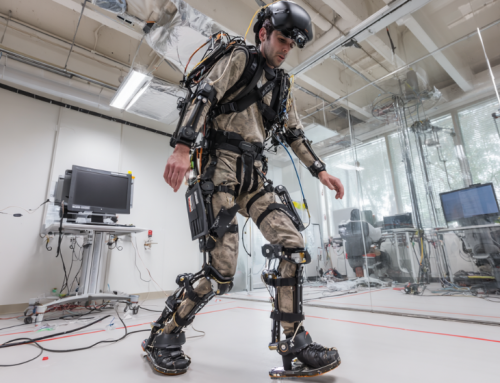
MIT chemists have developed ChromoGen, a groundbreaking AI-powered model that can predict the 3D structure of genomes in minutes, revolutionizing genetic research by providing faster, more accurate insights into DNA folding, gene expression, and disease mechanisms. (Source: Image by RR)
ChromoGen Analyzes DNA Folding, Shedding Light on Gene Expression and Cell Function
MIT chemists have developed ChromoGen, a generative AI-powered model that can rapidly predict the three-dimensional structure of genomes, significantly accelerating research in gene expression and cellular function. Unlike traditional experimental techniques like Hi-C, which take days or even weeks, ChromoGen generates thousands of highly accurate genomic structures in minutes, allowing researchers to study how DNA folding patterns regulate gene accessibility in different cell types. This breakthrough could revolutionize genetic research, providing a faster, cost-effective method to explore the relationship between genome structure and cellular function.
ChromoGen works by integrating deep learning and generative AI, utilizing two key components: one that analyzes DNA sequences and another that predicts chromatin conformations based on over 11 million experimentally derived structures. By capturing how genetic material folds within the nucleus, the model can determine how specific DNA sequences influence gene expression across different cell types. This method, according to a story in news.mit.edu, helps overcome a major limitation in genomics—the fact that a single DNA sequence can fold into multiple conformations, making structural prediction inherently complex.
Once trained, ChromoGen generates thousands of 3D genome structures in just 20 minutes on a single GPU, a task that would take months using conventional methods. The model’s predictions were validated against experimental chromatin structures, showing remarkable accuracy across different cell types and genomic regions. This suggests that ChromoGen can be used broadly to analyze genome folding variations, providing insight into how gene accessibility, chromatin states, and cellular identity are regulated at the molecular level.
Beyond basic research, ChromoGen could have significant medical applications, such as exploring how genetic mutations alter chromatin structure, potentially leading to disease development. By understanding these structural variations, scientists may uncover new therapeutic targets for genetic disorders. The research team has made ChromoGen and its datasets publicly available, paving the way for further advancements in genomics, epigenetics, and AI-driven biomedical research. This study, funded by the National Institutes of Health, highlights the potential of AI to transform biological discovery by bridging the gap between genomic sequencing and 3D genome organization.
read more at news.mit.edu







Leave A Comment